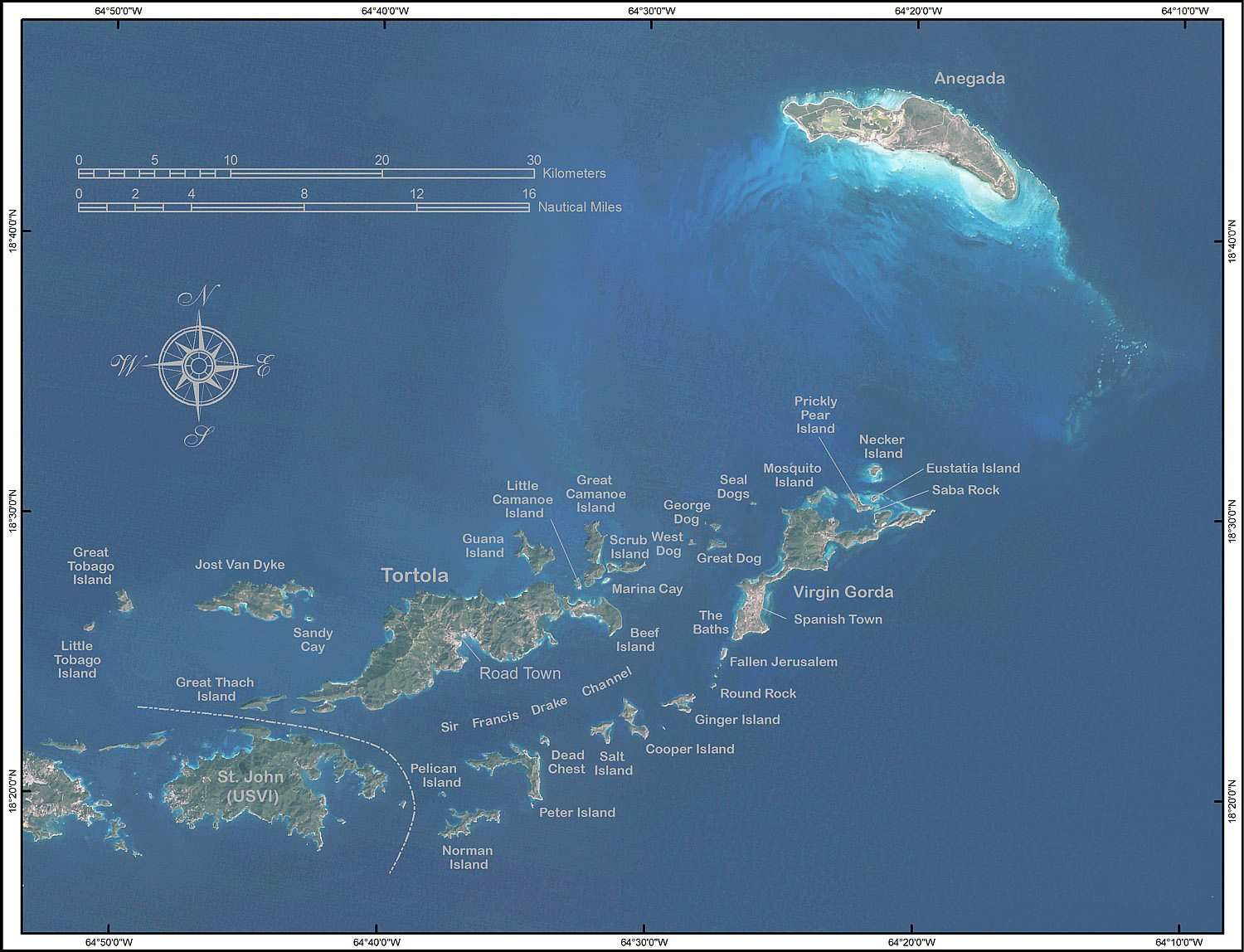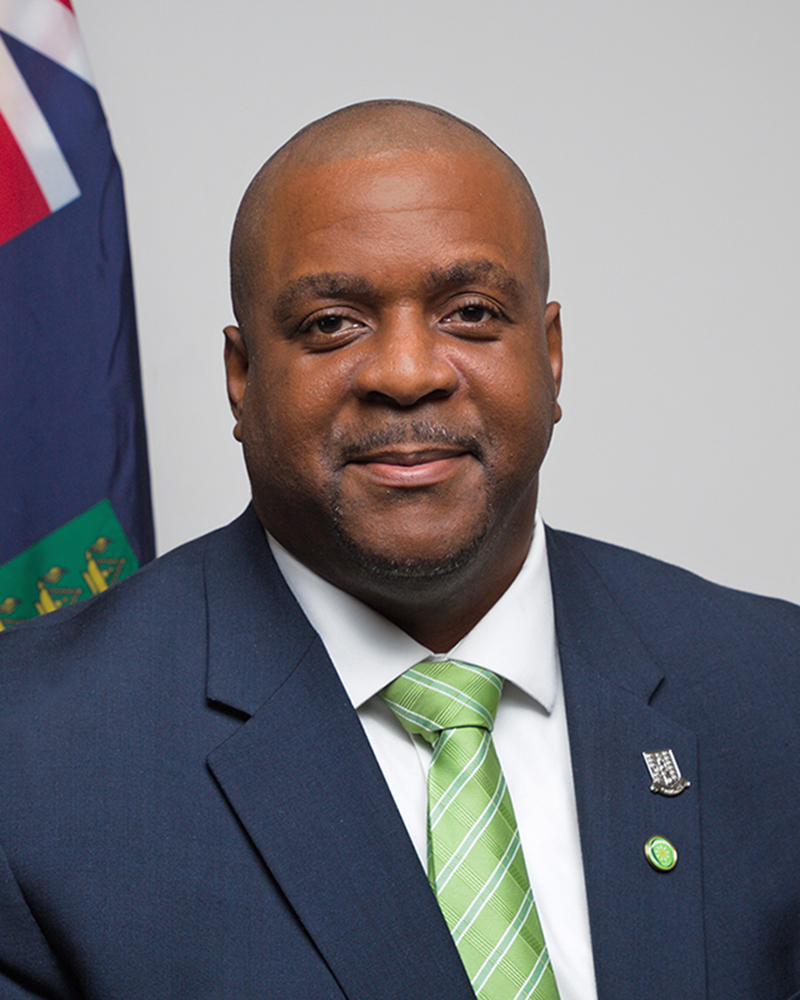Overview & Geography
The Virgin Islands is an internally self-governing overseas territory of the United Kingdom located in the heart of the Caribbean archipelago between North and South America, 60 miles east of Puerto Rico. The Territory is commonly referred to as the "British" Virgin Islands to distinguish it from the neighboring American territory, the United States Virgin Islands. The Virgin Islands consist of the main islands of Tortola, Virgin Gorda, Anegada, and Jost Van Dyke, along with more than 50 other smaller islands and cays. About 15 of the islands are inhabited. The capital, Road Town, is situated on Tortola, the largest island, which is approximately 20 km (12 mi) long and 5 km (3 mi) wide. The islands have a population of about 30,000, of whom approximately 23,500 live on Tortola. Virgin Islanders are classed as British Overseas Territories Citizens and since 2002 have had an entitlement to take up full UK citizenship.

Government
The Virgin Islands, as a self-governing Territory, has retained a large degree of internal self-government from 1967, upon which a ministerial system of government, led by a chief minister at the head of the legislature, and an Executive Council, headed by the Governor as the Queen’s representative. The Virgin Islands 2007 Constitution (15th June) saw the introduction of a Cabinet form of government in which the Cabinet acts as an authority above all Ministries, Departments, Statutory Boards, Enterprises and Agencies of Government (except where it is clearly stated). The Cabinet Office as a separate department of Government reports to the Governor and Premier, and is headed by the Cabinet Secretary. The Cabinet Secretary is selected by the Premier and appointed by the Governor, and must be a public officer a Virgin Islander.
The current Premier is Honourable Andrew A. Fahie (since 26 February, 2019), who is leader of the ruling Virgin Islands Party. The current Governor is Augustus (Gus) James Ulysses Jaspert (since 22 August 2017).

Premier and Minister of Finance of the British Virgin Islands: the Honourable Andrew A. Fahie
Economy
The "twin pillars" of BVI’s economy are financial services and tourism.
Financial services accounts for roughly 60 percent of national income of the Virgin Islands. The majority of this revenue is generated by the incorporating of BVI business companies and related services. The BVI is a significant global player in the offshore financial services industry and was ranked as the number one offshore financial centre in the Global Financial Centres Index in 2015. It is a leading centre for international business, including corporate domicile, trust and estate planning, fund establishment, administration and management, captive insurance and ship registration. Financial services business in the Virgin Islands is regulated by the independent BVI Financial Services Commission.
Tourism accounts for approximately 40 percent of the Territory’s national income. The islands are a popular destination for visitors from the United States, Canada, and Europe. Tourists frequent the numerous white sand beaches, visit The Baths on Virgin Gorda, snorkel the coral reefs near Anegada, or experience the well-known bars of Jost Van Dyke. The BVI is known as one of the world's greatest sailing destinations, and charter sailboats are a very popular way to visit less accessible islands. Every year since 1972 the BVI has hosted a seven day Spring Regatta, a collection of sailing races throughout the islands. Annually the BVI receives as many as 800,000 cruise passengers from around the world.
British Common Law
General Law
The Virgin Islands is a common law jurisdiction, although BVI laws and procedures differ significantly from English law because of local statutes, orders, and civil procedure rules. In certain instances Virgin Islands law provides that in default of any local provision, English law or procedure shall apply. The British Virgin Islands is a member state of the Eastern Caribbean Supreme Court. The courts are organised at four levels, including the provision for final appeal to the Judicial Committee of the Privy Council in London.
The BVI’s reputation is grounded in its robust, modern and yet flexible regulatory framework. The Territory continues to actively develop and enhance its legislation to provide an environment that is conducive to conduct financial services business.
The Virgin Islands Constitution
Please click here to read the constitution
Summary
|
Status: |
British Overseas Territory |
|
Principal Language: |
English |
|
Legal System: |
BVI legislation |
|
Judicial Branch: |
Eastern Caribbean Supreme Court |
|
Population: |
28,280 (2012 est.) |
|
Location: |
East of Puerto Rico; 18.25 N, 64.36 W |
|
Climate: |
Sub-tropical with the temperature range from 29 degrees celcius in the summer to 27 degrees celsius in the winter. |
|
Capital: |
Road Town, Tortola |
|
Area: |
154 sq km |
